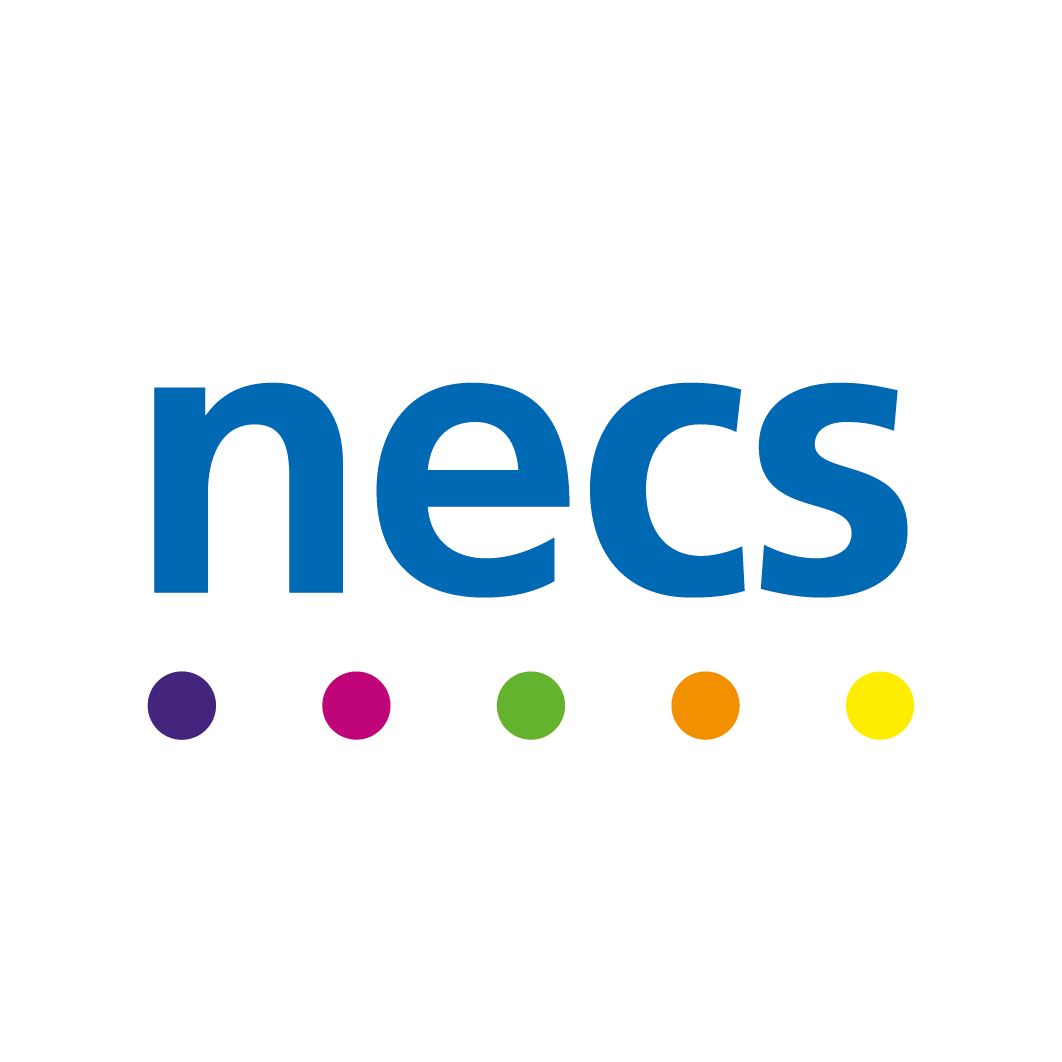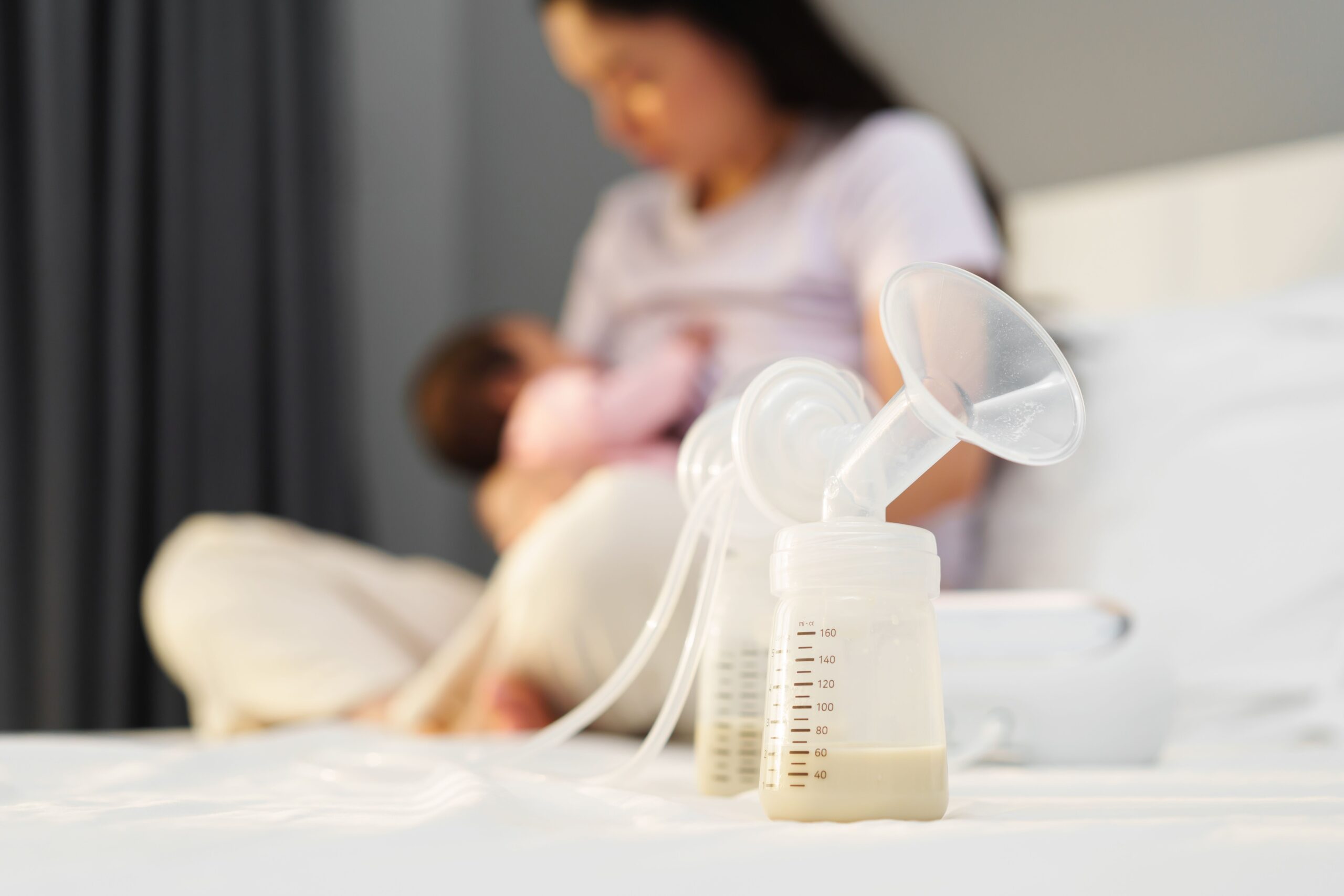Samantha Hogg, a Principal Consultant in the NECS Consultancy team, shares with us her experiences of breastfeeding this World Breastfeeding Week 2024 and tells us about the benefits of breastfeeding and what support is available.
“The theme of World Breastfeeding Week 2024 is “Breastfeeding Support For All”, and for me, this really hits home.
“My daughter was born in 2020 and we had a tough start with an unexpected extended stay in hospital. During this time, my daughter was struggling to breastfeed as she had a tongue-tie. This is when the tongue is attached to the bottom of the mouth, which restricts its movement. This was later rectified with a minor procedure. The midwives and breastfeeding co-ordinators in the hospital were so helpful, without their help and support, I wouldn’t have been able to continue to do something that I had desperately wanted to.
“I still needed some support when we came out of hospital, but due to lockdown, this was difficult to receive as the usual drop-in clinics and support groups were not available and advice was only available over the phone. I feel very blessed that we got through this initial phase and we were successfully able to breastfeed for 18 months.
“Friends and family members who have been keen to breastfeed when their babies arrived, some have been successful and others have struggled.
“Evidence shows that eight out of 10 women stop breastfeeding before they want to. This can be due to a lack of support from family or professionals, employers who have not got adequate provision to support women returning to work, difficulty expressing breastmilk, or pressure from wider society as breastfeeding is not always seen as the normal thing to do.
“I think it’s important to understand that every mother and baby will have a different experience and different needs, but there is support available. Your antenatal classes (before baby arrives) should offer key information about the most important aspects of breastfeeding. There are local NHS run breastfeeding teams who can provide in person support and often local breastfeeding groups, run by mums who are passionate about breastfeeding. There are also charities who can provide advice, such as the National Childcare Trust (NCT) and the La Leche League.
“But even though those first few weeks can be tough, it is absolutely worth the initial effort if breastfeeding is something you would like to do! There are so many benefits, but my favourite was the time I got to spend with my daughter. Here’s a few more benefits to think about if breastfeeding is something you are interested in:
For baby:
- Breastmilk meets all of your baby’s nutritional needs[1]
- Breastmilk production changes overtime, and the mother’s immune system can identify that the baby is ill and will produce antibodies to protect the baby from the infection1
- Breastmilk is readily available when needed1
- Breastmilk helps to build a strong emotional bond1
- Breastfeeding also reduces the risk of many diseases and reduced the risk of obesity1
- In the UK, costs of admissions to hospital for babies with illnesses which could be reduced by breastfeeding amount to an estimated £50 million per year
- Breastmilk content also varies according to the time of day. Evening milk contains more components that relax and aid babies sleep, while daytime milk contains different elements that stimulate activity.[2]
For mum:
- Breastfeeding decreases the risk of a number of diseases, including ovarian, uterine and breast cancers, osteoporosis in later life, cardiovascular disease, obesity and type 2 diabetes
- Breastfeeding releases a hormone called oxytocin that helps you feel calm and connected to your baby3
- Breastfeeding helps your body to speed up some healing processes, such as helping your womb to reduce in size after the baby is born[3]
- Breastfeeding is cost-effective and requires no preparation
- Expressing breastmilk allows you to store breastmilk so that other people can support you during feeding times.2
“Breastfeeding is also good for the environment; the absence of manufacturing and transportation processes in breastfeeding results in a lower carbon footprint compared to formula feeding:
- In the UK, the carbon emission savings gained by supporting parents to breastfeed is equivalent to removing up to 77,500 cars from the roads for one year. This is a combination of raw milk production, transportation and sterilisation.[4]
- For every 1kg of formula milk, 4kg of greenhouse gases are produced. Worldwide, this adds up to 27 billion tonnes per year. [5]
“So, if you, or someone you know, is keen to breastfeed, there are lots of places you can go for help. Never be afraid to ask as it’s one of the most effective ways to help your baby grow strong.”
“Breastfeeding is a skill that takes time to get the hang of. Lots of mums wonder if their baby’s feeding well and getting enough – especially in the first few days. But once you’ve mastered it, you’ll probably find it’s the easiest and most satisfying way to feed your baby.” (NHS, 2024)
What support NECS provide
As an organisation, NECS provides support to all breastfeeding mothers:
- Mental health support is available to them from our team of Mental Health First Aiders.
- All new and expectant mothers (this also applies to trans and non-binary individuals) will undertake an individual risk assessment, with their input to identify any risks and to make any adjustments needed.
- Rooms are available to book at NECS locations, for privacy.
- All sites have refrigerated space for storage of milk.


